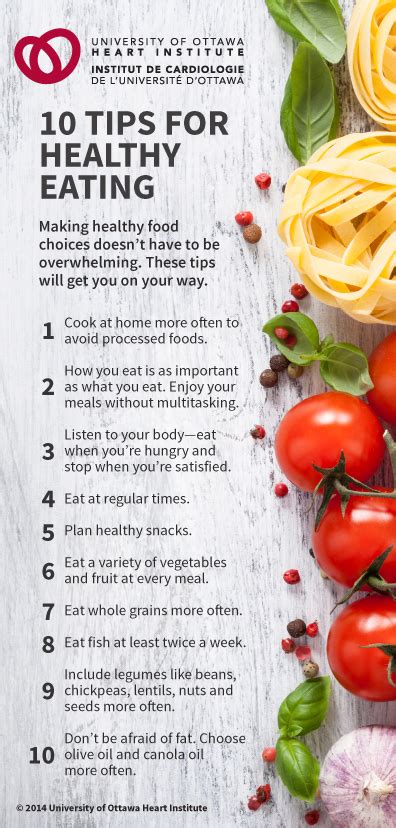Eating healthier is a goal that many of us strive for, but it can be challenging to know where to start. With so many conflicting diet trends and advice out there, it’s easy to get overwhelmed. However, by incorporating a few simple secrets into your daily routine, you can make a significant impact on your overall health and wellbeing. Here are 10 secrets to help you eat healthier, courtesy of experts in the field of nutrition.
1. Understand Your Nutrients
Before diving into any diet, it’s crucial to understand the basics of nutrition. This includes knowing the difference between macronutrients (carbohydrates, proteins, and fats) and micronutrients (vitamins and minerals), and how each plays a role in your body. For instance, carbohydrates provide energy, proteins are essential for muscle repair, and fats are vital for brain function and hormone production. Understanding how these nutrients work can help you make informed decisions about the foods you choose to eat.
2. Hydrate Adequately
Hydration is often overlooked but is a critical aspect of healthy eating. Drinking enough water can help control hunger, boost metabolism, and even improve the health of your skin. Aim for at least eight glasses of water a day, and consider increasing this amount if you’re physically active or live in a hot climate. Additionally, incorporating hydrating foods like watermelon and cucumbers into your diet can provide extra benefits.
3. Eat a Rainbow
The colors of the foods you eat can indicate the variety of nutrients you’re consuming. For example, leafy greens like spinach and kale are rich in iron and vitamins, while orange fruits and vegetables like carrots and pumpkins are high in vitamin A, essential for healthy vision and immune function. Eating a rainbow of foods ensures you’re getting a wide range of vitamins and minerals.
4. Incorporate Healthy Fats
Healthy fats, found in foods like avocados, nuts, and olive oil, are crucial for heart health, brain function, and the absorption of certain vitamins. Despite their high calorie count, these fats can help you feel full, reducing the likelihood of overeating and supporting weight management.
5. Plan Your Meals
Meal planning is a secret to eating healthier that many forget. By planning your meals for the week, you can avoid last-minute fast food runs or reliance on processed meals. Consider setting aside one day a week to plan and prep your meals for the upcoming days. This not only saves time but also helps ensure that you’re making healthy choices.
6. Don’t Skip Breakfast
Breakfast is often touted as the most important meal of the day, and for good reason. Eating breakfast can help kickstart your metabolism, providing you with the energy you need to tackle your day. Opt for a balanced breakfast that includes a mix of protein, healthy fats, and complex carbohydrates to keep you full until lunchtime.
7. Mind Your Portion Sizes
While eating a variety of foods is crucial, it’s equally important to pay attention to portion sizes. Even healthy foods can lead to weight gain and other health issues if consumed in excess. Use visual cues like the size of your fist or palm to gauge appropriate portion sizes, and avoid eating directly from large containers or bags, which can lead to mindless snacking.
8. Limit Processed Foods
Processed foods are often high in unhealthy ingredients like added sugars, sodium, and saturated fats. These foods can increase your risk of chronic diseases like diabetes and heart disease. Limit your intake of processed foods by reading labels carefully and opting for whole, unprocessed foods whenever possible.
9. Eat Regularly
Eating regular, balanced meals throughout the day can help maintain stable energy levels and prevent excessive hunger, which can lead to overeating. Aim for three main meals and one or two snacks, spaced evenly apart, to keep your body fueled and satisfied.
10. Make It Enjoyable
Lastly, the key to sustaining a healthy eating habit is making it enjoyable. Experiment with new recipes, flavors, and cooking techniques to keep your diet interesting. Involve family and friends in meal planning and cooking to make it a social, enjoyable experience. Remember, healthy eating is not about deprivation but about nourishing your body with the foods it needs to thrive.
What is the importance of understanding nutrients in healthy eating?
+Understanding nutrients is crucial because it helps you make informed decisions about your diet. Knowing the roles of carbohydrates, proteins, fats, vitamins, and minerals allows you to balance your meals and ensure you're providing your body with what it needs to function optimally.
How can I incorporate more healthy fats into my diet?
+Incorporating healthy fats can be as simple as adding avocado to your salads, using olive oil for cooking, or snacking on nuts and seeds. You can also try making homemade trail mix with nuts, seeds, and a bit of dark chocolate for a tasty and healthy snack.
What are the benefits of meal planning for healthy eating?
+Meal planning offers several benefits, including saving time, reducing food waste, and ensuring you're making healthy choices. By planning your meals in advance, you can avoid relying on fast food or processed meals, which are often high in unhealthy ingredients. Additionally, meal planning can help you stay within your budget and explore new recipes and flavors.
In conclusion, eating healthier is not about following a strict diet or depriving yourself of your favorite foods. It’s about making conscious choices that nourish your body and support your overall wellbeing. By incorporating these secrets into your daily routine, you can take the first steps towards a healthier, happier you. Remember, it’s all about balance, variety, and enjoying the journey to a healthier lifestyle.



